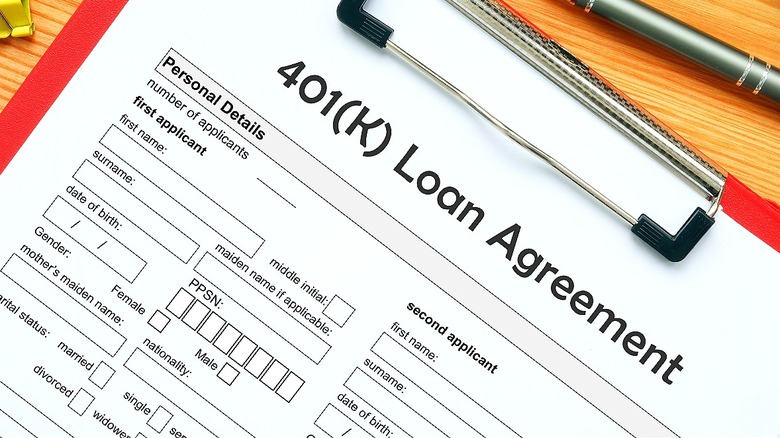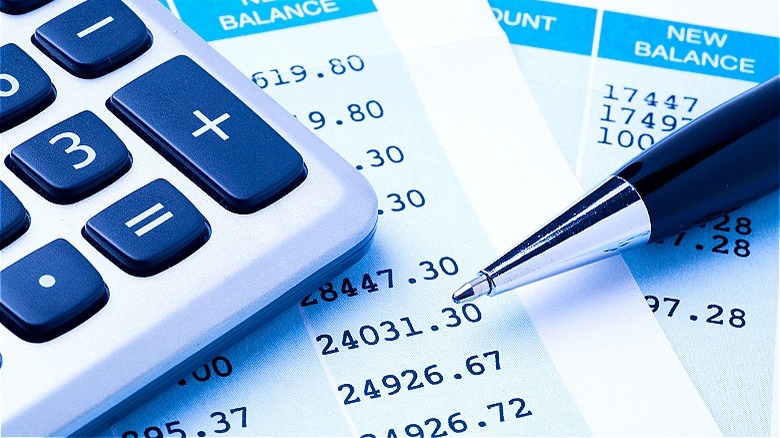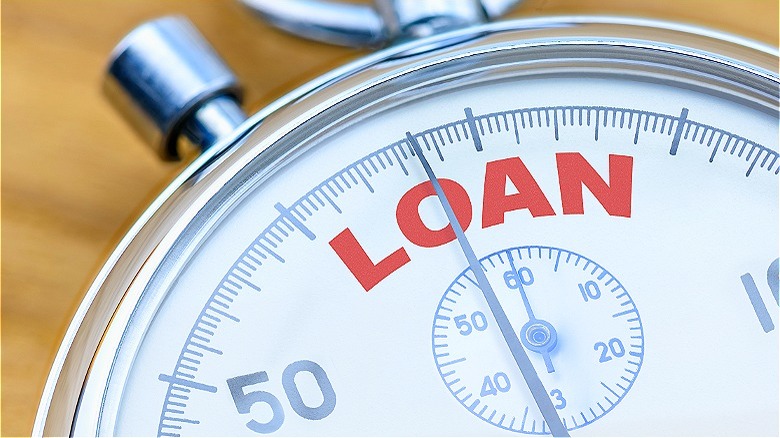Yes, You Can Borrow Money From Your 401(k). Here's How
Between ongoing inflation, interest rates, exorbitant housing prices, and the fact that the national debt of the United States hit a record-breaking $34 trillion in early 2024, it's no wonder people across the country are financially struggling. On top of this, the U.S. is also dealing with record-breaking credit card debt, which, as of the end of 2023, was $1.13 trillion. This current financial strain might have you considering things like borrowing from friends, downsizing, or even taking out a dreaded payday loan. While more and more Americans financially struggle to keep their heads above water, they might find themselves increasingly eyeing their retirement accounts as a way to help.
While it can be dangerous to put your future in jeopardy by taking money out of your 401(k) plan early, it can be extremely useful, as a last resort, for those who need financial assistance. Essentially, 401(k) plans allow account owners to borrow from their account balance under certain loan conditions. Best of all, you can usually set up this loan on your own, without needing any special permissions or representative assistance.
Typically, the website in which you usually manage your 401(k) account and investments will have a loan option readily accessible to you. This can help you calculate the amount you want to take out. However, while finding the online form and setting up a loan can be a simple enough process, there are some serious financial ramifications (and long-term consequences) you should consider before moving forward with the process of borrowing from your 401(k).
How much can you borrow
For starters, a person is capped at taking no more than $50,000 out of their 401(k) plan. Since the general rule is that you can't take out more than half of your vested total if your current 401(k) plan has less than $100,000, you would only be able to pull out up to half of whatever your current vested amount is. With that in mind, certain 401(k) plans will allow you to borrow up to $10,000 regardless of your current vested fund amount (even if it's less than $10,000), so it's important to review your specific plan and see what options are available to you.
It's also important to remember that, in addition to the amount you decide to borrow from your 401(k), you'll also need to know both the interest rate and payroll deduction amounts (especially if they're different than what you're used to) you'll be taking on as a result of the loan. This can make debt repayment take longer and be even more difficult. Most 401(k) loans have a standard five-year repayment schedule, and you pay the loan back with payroll deductions in the exact same way you would have been contributing to your 401(k) before. Keep in mind, these deductions are going to the loan balance and NOT your 401(k). Most of these loan types will not allow additional 401(k) contributions until after the loan is fully paid back. This means you won't be making progress toward your "magic number" retirement savings goals during the length of your repayment.
Things to look out for
While getting the money from your requested loan is usually a fast process, it's important to fully realize the process of paying the loan back. Mainly, what happens should you be unable to pay the loan back within your loan's agreed-upon terms? To put it simply, the unpaid amount left on the loan will be instead classified as a plan distribution to you from your 401(k) plan. This means it will be included in your gross income for the year, as well as any previously untaxed amount of this distribution. Also, if you are under the age of 59 ½ (or you don't have a special exception), you will also have to pay an additional 10% tax on the distribution for early withdrawal.
Plus, as previously mentioned, by paying off this kind of loan, you're essentially also losing the five years of retirement savings you would have made without the loan. This can be especially financially harmful if your employer offers a matching contributions program since you will have been missing out on extra retirement savings. Another thing to consider is that, should you lose your job during the repayment period of your loan, you'll more than likely have to pay back the outstanding balance in full within a much shorter grace period than the original loan terms or face default. Defaulting on a 401(k) loan means the outstanding loan balance is instead treated as taxable income and could affect your income tax levels for the year.


